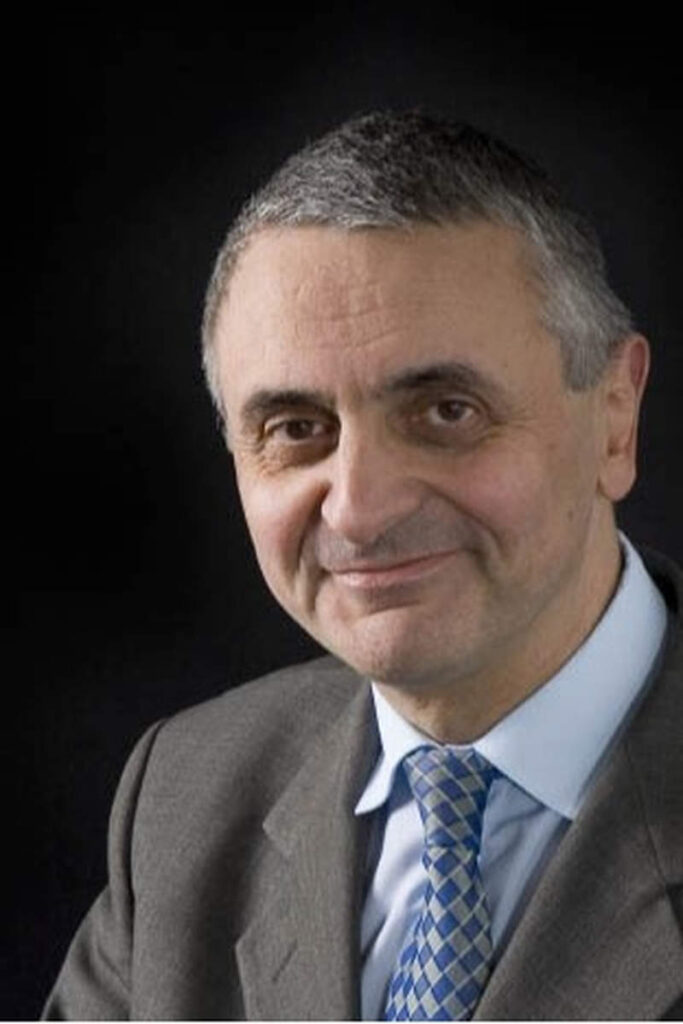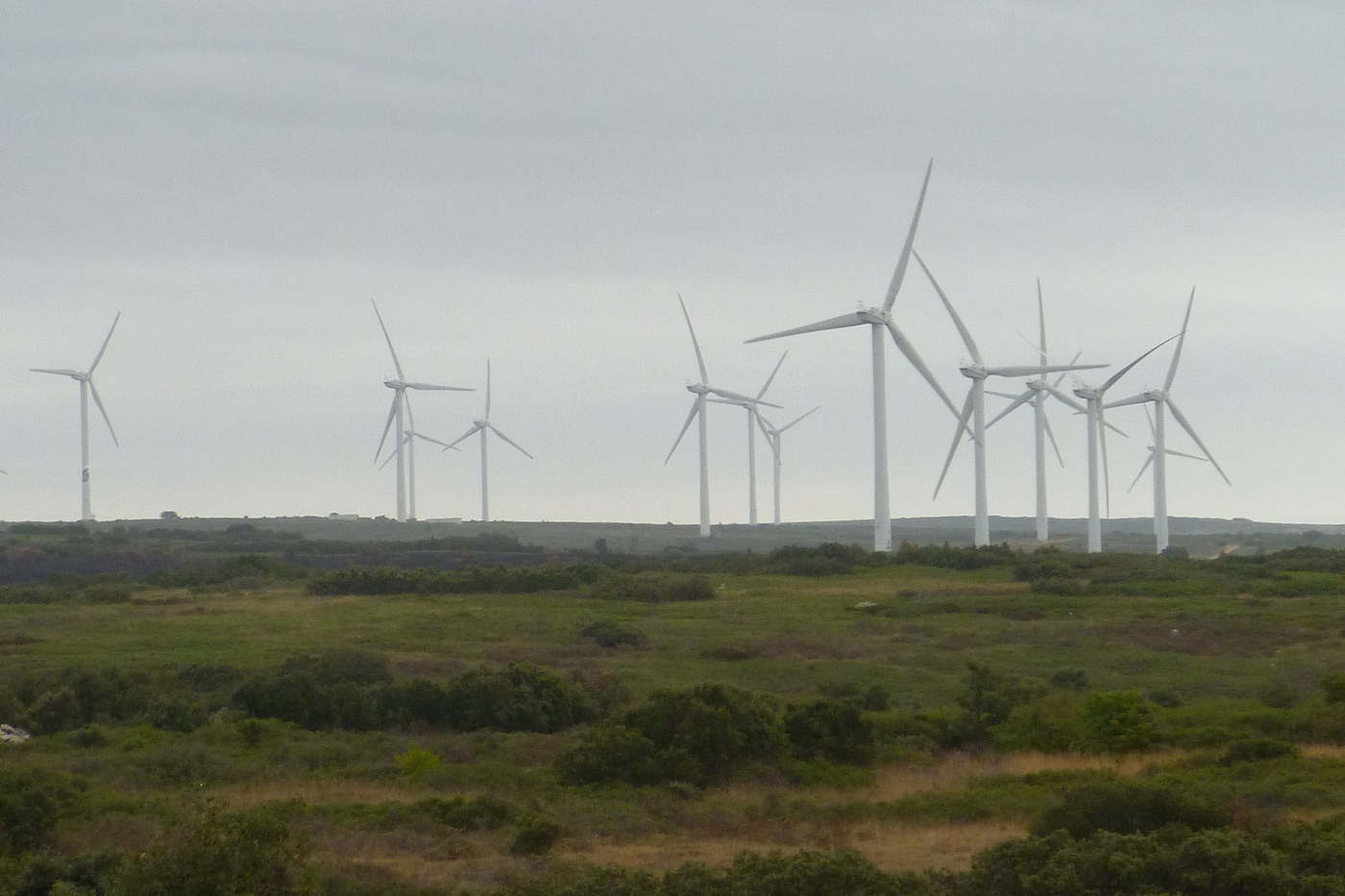Cérémé, an independent think tank, calls for an urgent strategic reorientation, based on rational, economically viable and ecologically efficient choices, to guarantee France’s energy future. Explanations and interview with Bruno Ladsous, director and president of the Vent de Colère federation.
A virulent article published in Le Figaro on July 3 by three right-wing figures – Bruno Retailleau, François-Xavier Bellamy and Julien Aubert – has thrown a spanner in the works of the parliamentary debate on France’s energy policy, as we wrote. In it, the authors call for an end to public subsidies for wind power and photovoltaics, which they deem too costly, unreliable and harmful to the environment. This stance, in favor of a massive return to nuclear power, immediately rekindled tensions within the Republicans (LR) and caused a stir within the government.
Alerting public opinion and politicians
Cérémé strongly criticizes France’s current energy policy, which is based on a “simultaneous energy policy”, i.e. the simultaneous development of nuclear power and intermittent renewable energies (wind and solar power). A different policy is possible for 2035-2050. The Cercle d’Étude Réalités Écologiques et Mix Énergétique (Cérémé), aims to “alert public opinion and political leaders to the fundamental issues associated with the energy mix strategy of France and the European Union.”
It asks, for example, “How many French people know that wind and solar power have doubled their electricity bills over the past ten years?” Indeed, the think tank notes that:
- Wind and solar power have doubled French electricity bills in ten years.
- The Programmation Pluriannuelle de l’Énergie (PPE 3) continues along this path, despite its high cost and energy inefficiency
- France is failing to conduct a rational and democratic debate on its energy strategy.
Logically, Cérémé proposes abandoning large-scale wind and solar power, and relying instead on an energy mix based on nuclear, hydraulic and thermal renewable energies (biomass, geothermal, etc.). He also proposes investing in energy efficiency in key sectors: industry, housing, transport and the service sector.
A long-term vision
This long-term vision of energy policy has many advantages, according to Cérémé:
- Estimated savings of 400 billion euros by 2050.
- Greater energy sovereignty.
- Accelerated decarbonization of the most polluting sectors.
- Reduced dependence on foreign industries and land rentiers.
Cérémé therefore calls for an urgent strategic reorientation, based on rational, economically viable and ecologically efficient choices, to guarantee France’s energy future.
Interview with Bruno Ladsous, Cérémé Board member and President of the Vent de Colère federation.

Cérémé, of which you are one of the directors, claims that intermittent, non-controllable renewable energies – wind and solar – have caused French electricity bills to double in twelve years. How do you explain this?
Basically, the investment costs of these energies, which are not very abundant in the Prime Minister’s sense of the term, are high for limited lifespans and average load factors, compared with energies that are truly abundant because they have a long lifespan and high availability rates, such as nuclear and hydro.
To this must be added the high connection costs of this diffuse electricity, and the costs of reinforcing the networks (transformers, etc.) associated with electricity produced far from the centers of consumption. These costs are discreetly included in our bill via what is known as TURPE.
Then there are the system costs resulting from their intermittency, and finally their calamitous environmental costs.
The problem in France is that the public authorities don’t want to take into account the full cost of production, everything included. Yet this is what the senators called for in their vote on July 8, including the cost of subsidies.
This increase in the price of electricity for households also applies to businesses, in varying proportions depending on the nature of their contracts. It is ruining what for 40 years has been France’s only real advantage in global competition: the price of its electricity.
Cérémé has published an econometric study of three countries (Germany, Denmark, France) over the period 1990 to 2020, which demonstrates a significant causal link between the rise in wind and solar power capacity on the one hand, and the inflation-adjusted price of electricity (households) on the other.
Despite a moratorium voted by the French National Assembly, then rejected on June 23, the Pluriannual Energy Program (PPE 3) continues in this direction, despite its high cost and energy inefficiency. As a Cérémé board member and president of the Fédération Vent de Colère, do you understand the protests across France against the development of onshore and offshore wind power?
The French have long understood that wind and solar power are not abundant, that they no longer decarbonize an electricity mix that has been largely decarbonized in France since the closure of oil and coal-fired power plants between 2015 and 2019 (1), that at peak demand in winter in windless and sunless conditions they are not available, and that they are responsible for doubling the price of electricity in 12 years.
They know that every day in France, nuclear electricity – the lowest-carbon electricity available – is being replaced by a much more carbon-intensive form of electricity, which benefits from an exorbitant advantage: priority injection into the grid, known as nuclear modulation.
Above all, the French are still discovering the environmental disaster caused by these machines, which ruin the attractiveness of their regions: the destruction of the landscape, history and memories, noise and visual nuisance, particularly at night, the enormous toll taken on natural areas and flying species, and the destruction of areas of human habitat.
Yet the beauty of the world is essential. It’s not just a question of aesthetics, because beauty encompasses history, education, art and culture, and is rooted in values shared by society. It brings a sense of satisfaction, balance and harmony between the whole and its parts.
It is profoundly incultured to reduce the landscape to a place of energy production. The destruction, in the name of a verdigris ideology, of beauty and of everything that gives meaning to existence in the countryside or on our seafronts, this alone explains the growing opposition that is manifesting itself all over France. The Fédération Vent de Colère supports them, providing associations with the tools and services they need.
These law-abiding citizens’ protests are not violent, but a tragedy can never be ruled out, as the public authorities continue to twist the law to the benefit of this industry, in total disregard of the Charter of the Environment. They’d better watch out.
Isn’t our energy policy too dependent on Brussels?
Energy is a shared competence between the European Union and its member states. That’s why we need to implement the three principles of subsidiarity, proportionality and technological neutrality, in particular by applying Article 5 of the EU Treaty.
Respect for these principles is essential, because it is unacceptable for France’s carbon footprint to be worsened by importing carbon-intensive electricity from Germany.
But successive French governments continue to bow to the implausible demands of the German-led European Commission. In reality, we’re paying the price for our governments’ chronic inability to get out of budget deficits.
Wind and solar power are good for Germany, which relies on gas and coal-fired power stations: they help to decarbonize the country in the absence of nuclear power. It’s out of weakness that we accept their erratic carbon surpluses on an almost daily basis, putting us at risk in terms of system security.
Finally, the public authorities are carefully hiding a key piece of information under the carpet (2): by 2024, renewable energies, including virtuous hydropower, will cover 35% of our domestic electricity consumption, close to the 2030 EU target to which France has subscribed (40%). Better still, if we take into account the 35 GW of wind and solar power projects authorized but not yet connected to the grid, still overlooked by the Ministry, the share of renewable energies will reach 43% by 2030.
As for the total energy mix (including heat, biogas, biofuels, etc.), renewables already account for 25% and should reach 48% by 2030, well above the 42.5% target set by the RED III directive.
Current project momentum is therefore sufficient to meet EU targets, and there is no need to invest in new intermittent energy capacity.
In a few words, how can we guarantee the French abundant, low-cost, low-carbon energy?
We need to think in terms of the total energy mix, which includes thermal renewable energies and biofuels, because the electrification of energy uses is not always the best solution in terms of quality and cost.
As far as the electricity mix is concerned, the basic foundation France needs is the one that has enabled it to live comfortably for 40 years, being, along with the northern countries, the most virtuous European country in terms of low-carbon emissions and prices.
We must therefore invest in nuclear power, ensuring that current reactors are repowered and extended to 70 or 80 years, in compliance with safety regulations. We also need to invest in hydropower, particularly pumped storage power stations (STEP).
At the end of their useful lives, we need to gradually rid our countryside and coasts of the wind turbines that clutter and denature them. As for solar power, it should be reserved, under stricter environmental conditions, for roofs and land that has already been artificially developed and cannot be renaturalized.
What France needs, then, is a scenario like the one proposed by Cérémé (3): one that respects the environment and the lifestyle of rural dwellers.
At the very least, all the alternatives to the costly and destructive PPE 3 decree must be studied, by an authority independent of a ministry that has lost the confidence of the French people through its astonishing bias in favor of wind and solar power, to the detriment of our country’s fundamental interests.
[3] https://cereme.fr/wp-content/uploads/2025/01/CEREME-sce%CC%81nario-mix-e%CC%81nerge%CC%81tique.pdf

